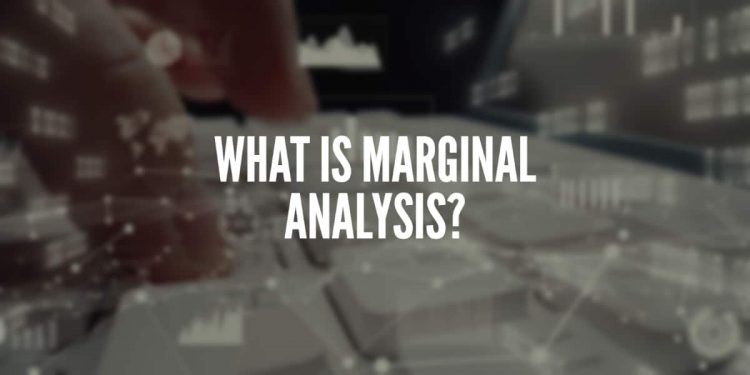What is marginal analysis?
Anyone involved in decision-making processes within a business has dealt with marginal analysis. So what is marginal analysis?
The marginal analysis represents a thorough research of the additional benefits of an activity compared to the additional costs related to that same activity.
What is marginal analysis: definition
Marginal analysis, also called cost-benefit analysis (CBA), is the study of the structure of costs, their evolution, and their effects on the cost price of goods and services. This is also an aspect of value analysis. In order to carry out the cost study correctly, it is first necessary to determine the different types of costs.: marginal, production, total cost, etc.
Marginal cost is the extra cost incurred by one or more units of a product or service that is produced or consumed. On the other hand, the marginal benefit is the added satisfaction or benefit obtained when one more unit of a good or service is produced or consumed. Essentially, it shows the change in total benefit per unit of change in quantity.
Here is a marginal cost example. A firm is producing sophisticated widgets that have a great market demand. The company is capable of purchasing machinery that can minimize the average cost of widget production, which decreases as the production quantity increases. The average cost of a single widget is approximately $5, but with the new equipment, the company can manufacture the 101st widget for just $1. Therefore, the marginal cost of producing is $1.
Marginal benefit measures the worth or usefulness that each additional unit brings. The best level of production or consumption is achieved when marginal cost equals marginal benefit, leading to the optimization of overall welfare or profit. This is commonly referred to as “marginal analysis” and assists people and businesses in making informed decisions by weighing the extra costs against the extra benefits.
Marginal analysis rules
There are two rules that aim to increase profits: the equilibrium rule and the efficient allocation rule. The equilibrium rule balances the marginal benefit and marginal cost. The efficient allocation rule ensures each unit of effort produces the same marginal return, following the efficiency principle.
The rules of thumb for profit maximization are:
Perform a business activity until the marginal profit is greater than the marginal cost.
For companies with a variety of products, there is another rule. Each product needs to have an equal marginal revenue to boost the benefits, particularly if there are constraints in terms of resources.
Marginal analysis example
In a bid to boost their sales, a baking firm is looking to expand its team by recruiting five new bakers. To ensure this move is financially viable, they conducted a marginal analysis to compare the costs and benefits. The results showed that the benefits of hiring the additional staff outweighed the costs, making it a wise decision for the business.
What is marginal analysis in accounting?
In accounting, marginal analysis is used to assess the profitability of a company’s activity. It helps to determine budgets and feeds the dashboards.
Here are the main costs that will be the subject of an accounting analysis:
The purchase cost, also called the supply cost;
Production cost: it includes all direct and indirect costs related to production activity;
The cost of distribution: it includes the price of ancillary activities, inventory management, and transport;
The cost price: this is the sum of all the costs mentioned above.
Methods of marginal analysis
Here are the different marginal analysis methods in cost accounting:
The full cost method: this consists of evaluating the various intermediate costs, but also the direct and indirect costs;
The variable cost method: also called direct costing, this marginal analysis method is based on the distinction between variable costs and fixed costs;
The price of goods or equipment,
Shipping, handling, and transportation costs;
Expenses related to the operation of the business;
Personnel costs (salaries, training, etc.);
Real estate: rental of offices, maintenance, security, etc.;
The cost of insurance and taxes;
Utilities, electricity, water, etc.
What does marginal analysis bring to the decision-making process?
Financial marginal analysis is a study of the benefits and risks of a project. This analysis is, therefore, essential before making personal decisions because it can deduce a potential profit.
When analyzing economic choices, individuals and businesses should consider both marginal cost and marginal benefit. Rational decision-making suggests that individuals should continue with an activity or increase production/consumption as long as the marginal benefit exceeds the marginal cost. Conversely, they should reduce or cease the activity when the marginal cost exceeds the marginal benefit.
The post What is marginal analysis? appeared first on FinanceBrokerage.






